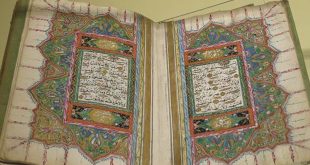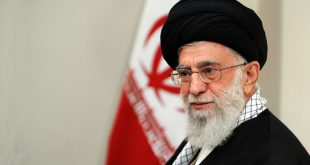The Karbala Center for Studies and Research, affiliated with the Astan (custodianship) of Imam Hussein (AS) holy shrine has announced the call for the 9th International Scientific Conference on Arbaeen Pilgrimage...
Read More »The Role of Muhammad Baqir al-Sadr in Shii Political Activism in Iraq from 1958 to 1980
On 8 April 1980, Muhammad Baqir al-Sadr was executed. His execution arousedno criticism from the West against the Iraqi regime, however, because Sadr had openly supported the Ayatollah Khomeini's regime in Iran and because the West was distracted by the turbulence in Iran that followed the revolution....
Read More »Islamic Manuscripts: A Path to Understanding Artistic Masterpieces
Manuscripts hold a significant place in various civilizations, as they serve as a means to understand the heritage of these cultures and are the primary source for the transmission of sciences, crafts, and other human knowledge....
Read More »Sayyida Bint al-Huda al-Sadr, Standard Bearer of Female Muslim Martyrs
Sayyida Āmina Haidar al-Sadr, who later adopted the pen name Bint al-Huda, was born in Muharram 1357 AH (1938) in Kadhimiya, Baghdad. She emerged as one of the most prominent figures in the Islamic world, especially in Iraq, during the mid-20th century.....
Read More »Who Is Buried in Jannat al-Baqi?
During the time of the prophet Muhammad (PBUH), Baqi also served as a shrine, and the Prophet used to leave his house for the Baqi at nights to perform his acts of...
Read More »Union of Muslim Scholars Issue Fatwa for Jihad against Israel
The International Union of Muslim Scholars (IUMS) has issued a religious decree, or fatwa, urging Muslim countries to provide immediate military, financial, and armed support to the Palestinian resistance in response to an ongoing genocide by the Israeli regime in Gaza...
Read More »Indian Parliament Passes Controversial Waqf Bill
Indian parliament has passed a controversial bill that overhauls laws governing Muslim religious endowments amid the opposition of Muslims and the opposition party...
Read More »Muslims Celebrates Eid al-Fitr in Iran, other Countries
Muslims in Iran and many other countries are celebrating Eid al-Fitr, marking the end of the holy fasting month of Ramadan, after the new moon of the lunar month of Shawwal was sighted the previous night...
Read More »Islamic World Have to Stand against Crimes of the Zionist on Palestine, Lebanon
Referring to the suffering of Palestine and Lebanon due to the crimes of the Zionist regime and its supporters, he highlighted the need for the Islamic world to stand firm against these hardships...
Read More »Eid al-Fitr, a Unique Festival Time of Joy for Muslims
Eid -ul -Fitr is a unique festival. It has no connection with any historical event nor is it related to the changes of seasons or cycles of agriculture. It is not a festival related in any way to worldly affairs....
Read More » Ijtihad Network Being Wise and Faithful Muslim in the Contemporary World
Ijtihad Network Being Wise and Faithful Muslim in the Contemporary World









